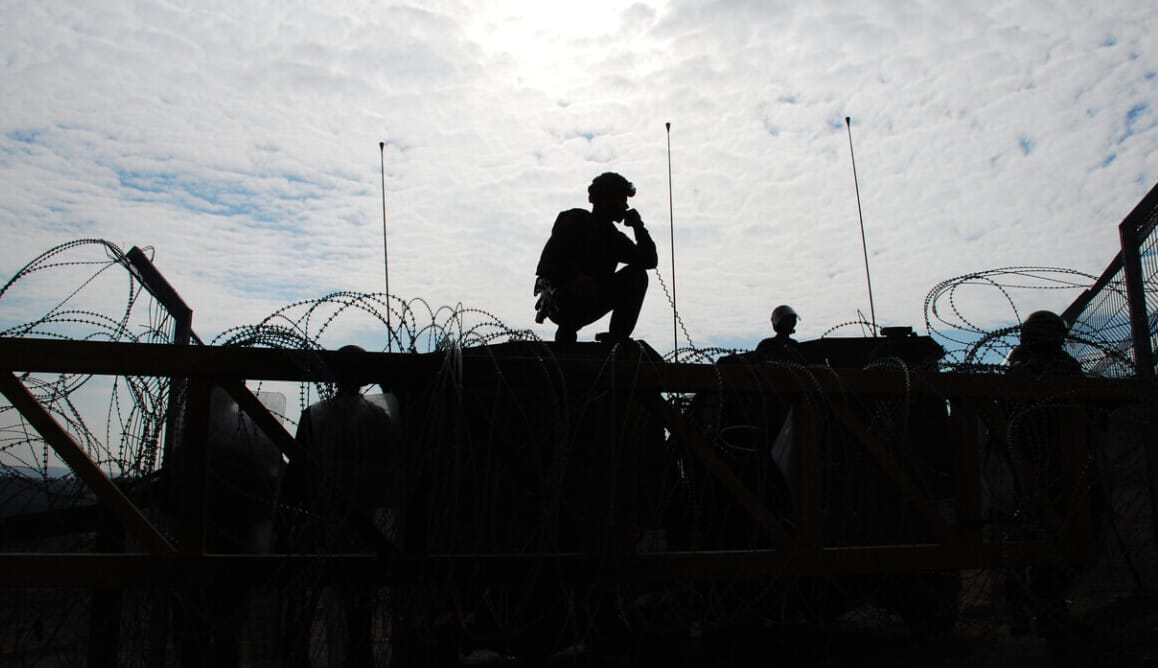Norway’s $2 trillion sovereign wealth fund, Norges Bank Investment Management, has divested US machinery manufacturer Caterpillar and five Israeli banks from its equity portfolio because of the risk of these firms contributing to human rights violations in the Palestinian territories.
The ethics committee for the world’s largest sovereign investor, which manages the assets of the oil fund, found that Caterpillar’s yellow bulldozers were being used in the “unlawful destruction of Palestinian property” and Caterpillar has “not implemented any measures to prevent such use.” NBIM had a $2.4 billion investment in the company at the end of 2024, equivalent to an ownership stake of around 1.2 per cent.
Meanwhile, NBIM has divested Israeli banks First International Bank of Israel Ltd and the holding company FIBI Holdings Ltd, Bank Leumi Le-Israel BM, Mizrahi Tefahot Bank Ltd, and Bank Hapoalim BM because these businesses have provided financial services required for construction activity in the West Bank, which had been “established in violation of international law”.
Last year, the United Nations found that Israeli settlements built on territory seized in 1967 were illegal, a ruling that Israel called “fundamentally wrong” because of its historical and biblical ties to the land.
“Before deciding to exclude a company, Norges Bank shall consider whether other measures, including active ownership, may be better suited. The board’s assessment is that it is not appropriate to use other measures in these cases,” said NBIM in a statement.
Part of an ongoing purge
The latest divestments mark a step up in the oil fund’s response to growing scrutiny of whether it has been helping to finance Israel’s war in Gaza, and come in response to Norway’s Ministry of Finance asking the fund to review its investments in Israeli companies.
A letter from the Ministry of Finance in early August questioned the fund’s individual investments given the deteriorating situation in the West Bank and Gaza.
Earlier in the month, NBIM sold its eleven holdings of Israeli companies outside of its equity benchmark index and severed ties with external Israeli fund managers. It means the fund’s investments in Israel are now limited to companies that are in its equity benchmark index.
However, it won’t invest in all Israeli companies in its reference index. There were 56 Israeli companies in the benchmark index – which consists of around 9,200 global companies – at the end of the first half of the year. NBIM currently invests in 38, with a total investment value of around NOK 19 billion (approximately $1.9 billion).
“These measures were taken in response to extraordinary circumstances. The situation in Gaza is a serious humanitarian crisis. We are invested in companies that operate in a country at war, and conditions in the West Bank and Gaza have recently worsened. In response, we will further strengthen our due diligence,” said Nicolai Tangen, chief executive of Norges Bank Investment Management, speaking in early August. “The measures we are taking will simplify the management of our investments in this market and reduce the number of companies that we and the Council on Ethics monitor.”
The oil fund’s divestment strategy has also lagged Norway’s much smaller NOK 878 billion ($87 billion) Kommunal Landspensjonskasse (KLP), the fund for local government employees and healthcare workers.
In July, KLP stepped up exclusion to include US industrials group Oshkosh Corporation and Germany’s ThyssenKrupp for selling weapons including armoured personnel carriers, warships and submarines to the Israeli military.
Updated expectations
NBIM said that in 2022 and 2024 it updated the expectation document on human rights and strengthened the expectations of companies’ conduct in conflict areas to reduce the risk that they contribute to violations of human rights and international law.
Since 2020, NBIM has contacted over 60 companies about due diligence and risk-reducing measures in war and conflict areas.
“We have had dialogue with over 30 companies with operations connected to the West Bank and Gaza. This is ongoing work that is given high priority,” said the fund.
The investor monitors new companies that enter the investment portfolio on a daily basis, and since 2024 has required that external managers must have prior approval to make investments in Israeli companies that were not already included in the portfolio.
“Not all new companies that were assessed received such approval,” it said.
That includes Bet Shemesh Engines Holdings, the Israeli aerospace and defence company, which was originally assessed as a company with medium risk. The Ethics Council said it should have escalated the risk sooner after media reports uncovered the investment, prompting public outcry.
“Given the information that has now emerged, the company would have been assessed as high risk. With a broadly invested global portfolio, there will always be a risk that information is not captured early enough, or that we make assessments we, in hindsight, would have made differently,” said the fund.


